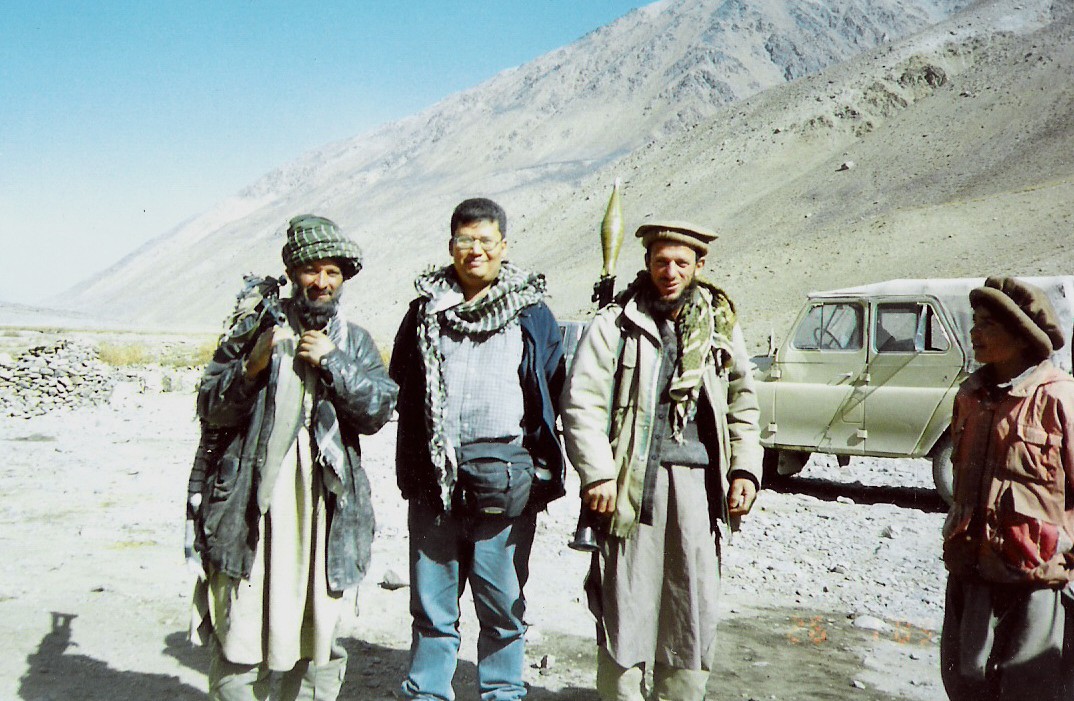Tuesday 28 November 2006
Tuesday 23 May 2006
Hopelessly adrift in the stormy south
Stand-offs between villagers and officials at four other sites should have taught a lesson
Don PathanThe Nation
Rangae, Narathiwat
It was somewhere between a pep talk and an order, but the words from the Fourth Army commander, Lt-General Ongkorn Thongprasom, to the two village heads summed up the deeply disturbed relationship between the ethnic Malays in the deep South and state officials sent here to maintain law and order.
"You have to tell the people in your village to work with us" Ongkorn told the headmen, who were at the scene where 10 men, believed to be insurgents, beat two elementary school teachers senseless in a small dark room. The teachers had been held hostage by a group of villagers demanding the release of two suspected militants arrested earlier in the day.
What's disturbing about the conversation between Ongkorn and the village officials is the sad reminder that not much has changed since Siam incorporated the region into its boundary over 100 years ago. The situation today is pretty much as it was then, although the Siamese elite have been replaced by pipe-smoking top brass more concerned about law and order than more abstract issues, such as identity, ethnicity, history and social mobility for Malays. Every generation or so, a separatist organisation emerges, saying a liberated Patani is the only solution to this predicament.
What's disturbing about the latest generation of insurgents is that they don't seem to abide by any guiding norms or rules of engagement, say local residents and exiled Malays living abroad.
"I was able to negotiate with the BRN [Barisan Revolusi Nasional] to get out of paying protection money. They left me alone because they knew five Muslim families depended on my plantation for a living," recalled a Buddhist local in Yala's Yaha district.
BRN was a prominent Malay separatist organisation formed to resist Thailand's policy of disbanding Islamic private schools.
The two young teachers who were savagely beaten in this Narathiwat district last week were from Chiang Rai. They came here to pursue their careers, bravely taking up an assignment in a region spurned by most civil servants. The village they were sent to has been declared a "red area", meaning it has a high concentration of insurgents. Yet the security units that swooped on Friday morning and sparked the violence appear to have given little consideration to the possibility of repercussions, even though similar incidents have occurred before.
The stand-offs between officials and villagers in Tanyonglimo, Ban Laharn, Ai Ba Thu and Ban Joh Koh show a pattern that should have become an important lesson for the security forces. But it took security officials about two hours to get to Rangae, by which time the two teachers were already being rushed to hospital.
Talk to local residents and you can feel their resentment at television anchors in Bangkok painting a simple picture of violence in the region, while ignoring that many Malay Muslims are caught up in this clash between state security forces and the insurgents. There is a breakdown of trust between the community, especially in remote areas, and the state apparatus. And when a community loses all respect for state agencies, it takes matters into its own hands - sometimes violently. Former hostages, such as the teachers who were held at Joh I Rong district's Ban Chor Koh School by hundreds of villagers, warn against implicating the entire community. Dire consequences face those who ignore commands and demonstrate in the streets, say the former hostages, who refuse to point out the five people who attacked them.
While the patrolling forces come and go, local villagers don't have the luxury of being able to pack up and leave. The fact few come forward to identify the miscreants among them reflects the lack of confidence they have in the government's ability to protect them. While no one here condones the brutality against the teachers, most are bitter the same kind of condemnation was not expressed when at least 78 unarmed Tak Bai demonstrators died in custody of police and soldiers 18 months ago. The taking of public school teachers as hostages following a dispute between security forces and local residents in this so-called "red area" could very well happen again.
Lt-General Ongkorn said from now, when a suspect was arrested, security officials will be required to stay and explain the charges to the local community, to prevent a repeat of this week's incident.
The villagers may listen to the officials who are armed to the teeth. But whether they will believe them is another thing altogether.
Subscribe to:
Posts (Atom)
